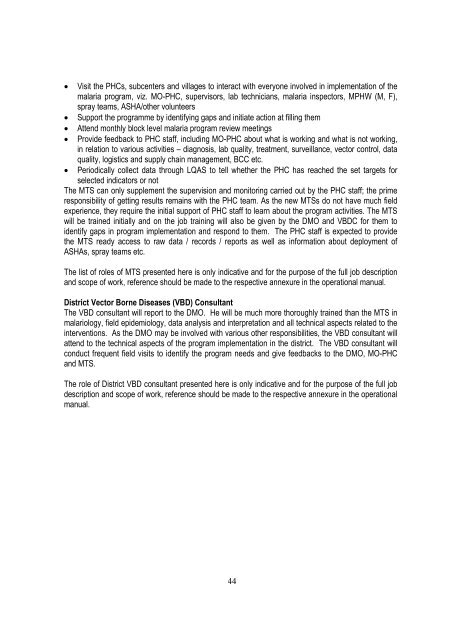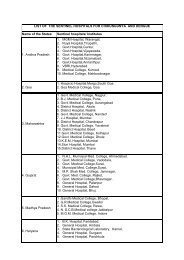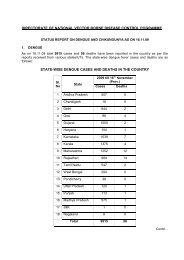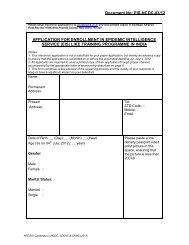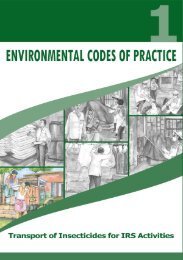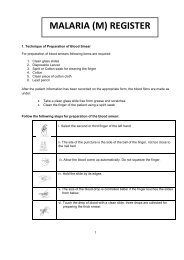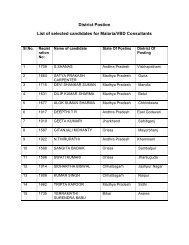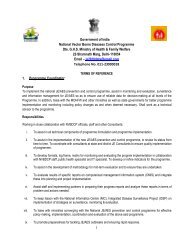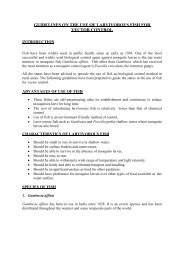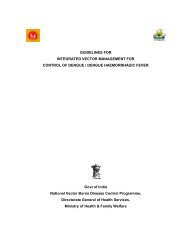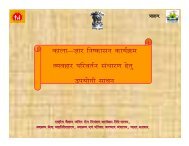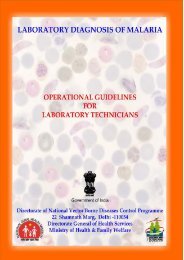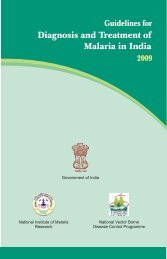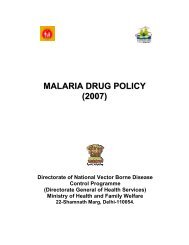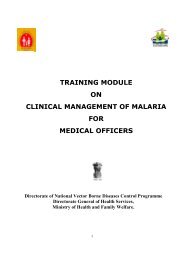training module for medical officers primary health centre - NVBDCP
training module for medical officers primary health centre - NVBDCP
training module for medical officers primary health centre - NVBDCP
- No tags were found...
Create successful ePaper yourself
Turn your PDF publications into a flip-book with our unique Google optimized e-Paper software.
Visit the PHCs, subcenters and villages to interact with everyone involved in implementation of themalaria program, viz. MO-PHC, supervisors, lab technicians, malaria inspectors, MPHW (M, F),spray teams, ASHA/other volunteersSupport the programme by identifying gaps and initiate action at filling themAttend monthly block level malaria program review meetingsProvide feedback to PHC staff, including MO-PHC about what is working and what is not working,in relation to various activities – diagnosis, lab quality, treatment, surveillance, vector control, dataquality, logistics and supply chain management, BCC etc.Periodically collect data through LQAS to tell whether the PHC has reached the set targets <strong>for</strong>selected indicators or notThe MTS can only supplement the supervision and monitoring carried out by the PHC staff; the primeresponsibility of getting results remains with the PHC team. As the new MTSs do not have much fieldexperience, they require the initial support of PHC staff to learn about the program activities. The MTSwill be trained initially and on the job <strong>training</strong> will also be given by the DMO and VBDC <strong>for</strong> them toidentify gaps in program implementation and respond to them. The PHC staff is expected to providethe MTS ready access to raw data / records / reports as well as in<strong>for</strong>mation about deployment ofASHAs, spray teams etc.The list of roles of MTS presented here is only indicative and <strong>for</strong> the purpose of the full job descriptionand scope of work, reference should be made to the respective annexure in the operational manual.District Vector Borne Diseases (VBD) ConsultantThe VBD consultant will report to the DMO. He will be much more thoroughly trained than the MTS inmalariology, field epidemiology, data analysis and interpretation and all technical aspects related to theinterventions. As the DMO may be involved with various other responsibilities, the VBD consultant willattend to the technical aspects of the program implementation in the district. The VBD consultant willconduct frequent field visits to identify the program needs and give feedbacks to the DMO, MO-PHCand MTS.The role of District VBD consultant presented here is only indicative and <strong>for</strong> the purpose of the full jobdescription and scope of work, reference should be made to the respective annexure in the operationalmanual.44


